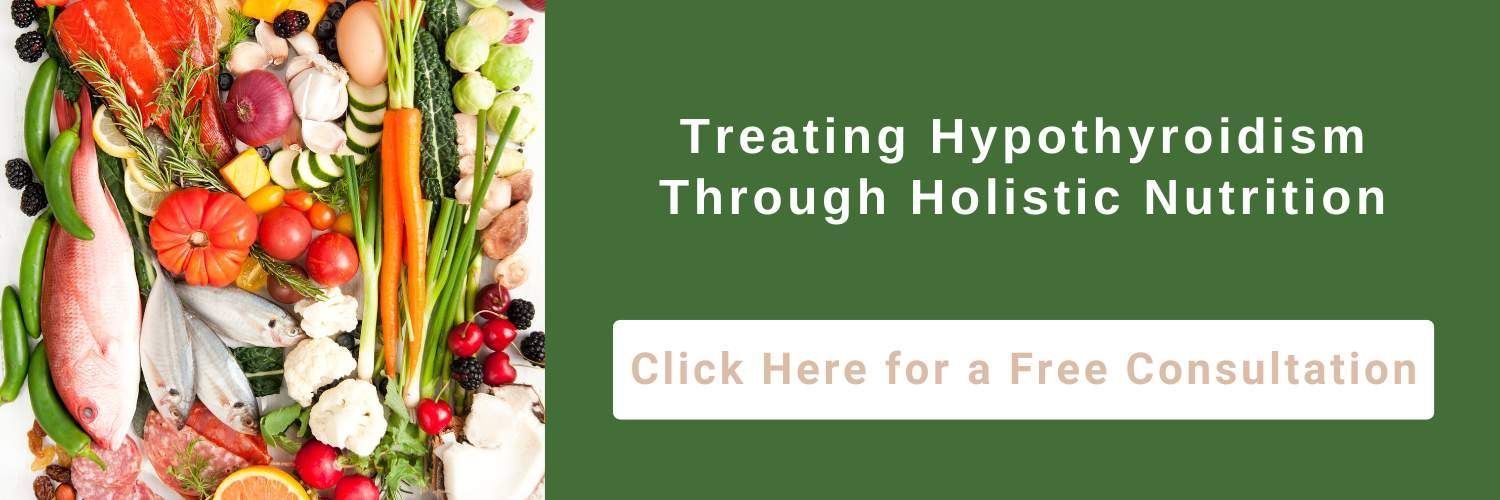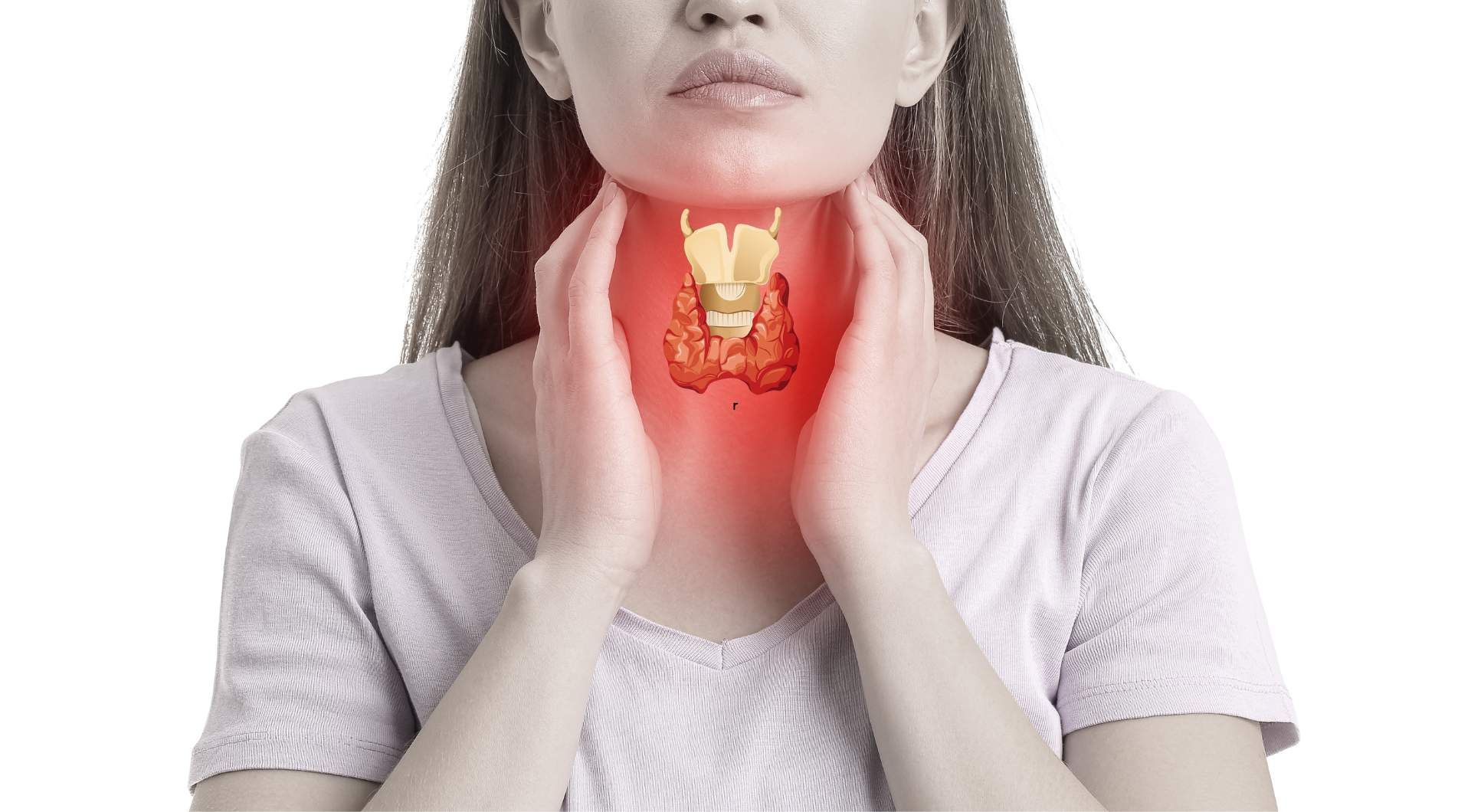Can Low Estrogen Be a Root Cause of Hashimoto's Disease? The Hormonal Connection to Thyroid Imbalance
"The content below is not intended to be a substitute for professional medical advice, diagnosis, or treatment. Always seek the advice of your physician or other qualified health provider with any questions you may have regarding a medical condition."
Estrogen is an indispensable hormone that affects the functions of the entire body.
It lies at the center of all human pathologies as a necessary evil that does the body good and a little bit of bad from time to time.
When your estrogen is out of balance, the impact reverberates throughout your body and afflicts other seemingly unrelated organs — including your thyroid.
Too much or too little estrogen and everything comes crumbling down.
So, if estrogen is one of the fundamental building blocks of health and bodily regulation, can low estrogen also be a root cause of Hashimoto’s?
In this article, we will explore these questions and more. Keep reading to learn how Hashimoto’s affects estrogen and how you may be able to naturally remediate Hashimoto's symptoms.
Table of Contents
Does Hashimoto's Affect Estrogen?
Yes, Hashimoto’s disease may have an effect on estrogen.
Estrogen may have a profound influence on various biological functions.
It is a recent-known fact that estrogen also has a direct effect on the thyroid economy. This means that it can influence the production and regulation of thyroid hormones and enzymes, including:
- Triiodothyronine (T3)
- Thyroxine (T4)
- Thyrotropin-releasing hormone (TRH)
- Thyroid-stimulating hormone (TSH)
- Thyroid peroxidase antibodies (TPOAb)
Hashiomoto’s affects more than just your thyroid — it impacts your entire life.
From navigating the disease to managing symptoms, your Hashimoto’s may cause a host of issues and potentially put you at risk for further developing other autoimmune disorders.
Don’t succumb to living with your Hashimoto’s symptoms. Fight back with the power of something you do every day — eating!
HealthierU and Dr. Donna Sergi are here to tell you that you don’t have to submit your Hashimoto’s disease. Along with developing a nutritional treatment plan, we will coach you on how to make food choices that may diminish your Hashimoto’s symptoms and help you on a path toward better health and wellness.
Can Hashimoto's Cause Low Estrogen?
So far, there has been little research into whether Hashimoto's causes low estrogen or not. However, a few studies have suggested there may be a connection between the two.
Thyroid dysfunction has long been associated with menstrual irregularities, but the link between thyroid disorders and low estrogen levels has yet to be found.
The Relationship Between Estrogen and Hashimoto's Disease
Hormone imbalances have a distinct effect on immune responses. Hashimoto’s disease causes hypothyroidism because the immune system launches a constant attack on the thyroid, slowly damaging it and affecting its ability to create and regulate thyroid hormones over time.
Too much estrogen may stoke autoimmune responses, which may be why pregnancy can trigger thyroid dysfunction.
Estrogen also suppresses thyroid hormones and increases the production of thyroid-stimulating hormones (TSH), whereas progesterone increases thyroid hormones. High estrogen and low progesterone levels may create a combination that inhibits the thyroid's ability to function correctly.
However, recent research suggests that high levels of estrogen may be linked to thyroid disorders like hypothyroidism and Hashimoto’s.
For example, one study explored the link between patients with polycystic ovarian syndrome (PCOS) and the prevalence of Hashimoto’s thyroiditis. It found that an increased estrogen and estrogen/progesterone ratio directly correlated with high anti-TPO levels in PCOS patients.
Another
study suggests that high estrogen exposure in pregnant women may even significantly lead to thyroid disorders in offspring.
What Is Estrogen Dominance?
Estrogen dominance, also referred to as unopposed estrogen, is a theory and umbrella term that describes any condition where estrogen levels are high or normal and progesterone levels are low.
The theory was first proposed in 1996 by John R. Lee and Virginia Hopkins in their book
What Your Doctor May Not Tell You About Menopause: The Breakthrough Book on Natural Progesterone.
Two Types of Estrogen Dominance
#1: Frank Estrogen Dominance
Estrogen and progesterone work together, along with the adrenal and thyroid hormones, to maintain homeostasis and biological function.
There are four types of naturally occurring estrogen, which are:
- Estrone (E1)
- Estradiol (E2)
- Estriol (E3)
- Estetrol (E4)
Estrogen controls various functions, but it is primarily responsible for regulating the growth, development, and physiology of the human reproductive system. It also influences the endocrine, cardiovascular, skeletal, and connective tissue systems.
The main function of progesterone is to prepare the female body for pregnancy; this means increasing endometrial tissue to encourage egg implantation.
Frank estrogen dominance happens when estrogen levels are too high and cause an uneven balance of progestin-to-estrogen ratios.
High estrogen levels combined with normal progesterone levels is the most common type of estrogen dominance and usually occur when:
- The body is making too much estrogen
- Excess estrogen is coming from an external source; or
- The body is having difficulty removing excess estrogen
#2: Relative Estrogen Dominance
The second type is referred to as relative estrogen dominance. It occurs when estrogen levels are normal, but progesterone is exceptionally low, leading to an imbalance in progesterone-estrogen ratios.
This situation is more common after pregnancy or in menopause and is due to the rapid decrease in progesterone production.
Other causes of low progesterone may include:
- Anovulation (no ovulation)
- Polycystic ovarian syndrome (PCOS)
- Hyperprolactinemia (elevated prolactin)
- Low cholesterol
- Increased cortisol levels
What Are the Symptoms of Estrogen Dominance?
Symptoms of estrogen dominance may include:
- Weight gain
- Heavy or light periods
- Severe premenstrual syndrome (PMS) symptoms
- Fatigue
- Fibroids in the uterus
- Fibrocystic breast lumps
- Low sex drive
- Low mood or anxiety
Other symptoms may include:
- Bloating
- Headaches
- Disrupted sleep
- Hair loss
5 Causes of Estrogen Dominance That May Lead to Hashimoto’s
HealthierU recommends that you adhere to the medical advice of your primary care specialist and other healthcare authorities when treating your Hashimoto’s and thyroid dysfunction disorders.
It is a well-known fact in the healthcare community that health involves many different, working variables. Your body and immune system also have a diverse set of components that are affected by various facets of your lifestyle and genetics, including diet and nutrition.
Medical interventions like medications and therapies may disrupt root health problems, but nutrition may also help improve symptoms of diseases and disorders like Hashimoto’s.
HealthierU invites you to learn more about the efficacy of nutrition and the role diet may have in helping you manage your Hashimoto’s symptoms.
#1: Hormonal Birth Control
Hormonal birth control is designed to stop ovulation by suppressing the body’s natural production of estrogen and progesterone.
By introducing artificial reproductive hormones into the body, natural hormone production temporarily halts, which may possibly lead to hormonal imbalances such as estrogen dominance.
There are two forms of hormonal birth control:
- Estrogen and progestin (artificial progesterone)
- Progestin-only
Progesterone is primarily responsible for preventing pregnancy, whereas estrogen only controls menstrual bleeding. Both estrogen and progestin birth control and progestin-only birth control will cause estrogen to lower.
While there is no direct evidence that hormonal birth control causes thyroid disease, a 2021 cross-sectional
study suggests that there may be a strong association between hypothyroidism and long-term hormonal birth control use (more than ten years).
#2: Xenoestrogens
Xenoestrogens are foreign estrogen-mimicking compounds that may be synthetic or natural.
Exposure to these compounds may cause increased estrogen levels as they bond to estrogen receptors and induce responses typical to estrogen.
Various products contain xenoestrogens, but exposure can occur through non-organic foods, plastics, the water supply, and personal care products.
A few products that contain xenoestrogens include:
- Plasticizers
- Perfume fixatives, like parabens and phthalates
- Soy
- Solvents
- Industrial chemicals and pollutants, such as insecticides
- Epoxy resins
- Polycarbonate
- Other plastics
- Herbicides
#3: Conventional Hormone Replacement Therapy (HRT)
Estrogen replacement therapy involving synthetic hormones is often prescribed for perimenopause and menopausal patients to ease uncomfortable symptoms.
Perimenopause and menopause may cause estrogen levels to fluctuate before completely ceasing. This means that the body may still produce estrogen while being supplemented by hormone therapy, possibly leading to excess estrogen levels.
#4: Obesity
According to research, excess body fat has been associated with increased levels of estrogen, particularly in post-menopausal women.
Many obesity-related factors, such as inflammation and proteins that regulate appetite and metabolism, can also cause an upregulation of estrogen.
By regulating your diet and enhancing your nutritional habits, you may help reduce the risk of developing Hashimoto’s due to excess estrogen caused by fat cells.
HealthierU prioritizes health over societal expectations regarding body image. We understand how toxic diet culture and cultural stigmas can affect our clients. Our goal is to help you use nutrition to make steps toward a happier, healthier you.
Dr. Donna Sergi will help you achieve work toward nutritional health goals with compassion, understanding, and zero judgment.
#5: Genetics
Certain genetic sequences may impact how well your body metabolizes, regulates, and produces estrogen. For example, one gene expression, referred to as COMT, uses DNA to instruct estrogen to be produced through a protective pathway.
The COMT gene allows us to break down catecholamines, which are hormones made by your adrenal gland, and catechol-estrogens, specifically through methylation.
Methylation is a biochemical process where a small molecule called a methyl group replaces a hydrogen atom with DNA, proteins, hormones, or other molecules. This process is responsible for turning off processes that create proteins, steroids, and hormones (such as estrogen).
So, if you have an alteration on your COMT gene, it may slow the process of turning hydroxy-estrogen into methoxy-estrogen. Consequently, there may be a build-up of hydroxy-estrogens and estrogens in the body.
HealthierU: Holistic Treatment for Hashimoto’s Disease and Hormone Imbalance
So now that we’ve answered questions like “Can Hashimoto’s cause low estrogen?” and “How does Hashimoto’s affect estrogen?” let’s have a conversation about how you can get a handle on your excess estrogen and Hashimoto’s with diet and nutrition.
Research suggests diets rich in whole foods and fiber are associated with balancing estrogen levels. It also may help if you avoid processed foods and refined carbs.
For some, it can be difficult to navigate food choices when you’re suffering from the effects of a thyroid dysfunction disorder. It can be even more challenging if you feel like you’re making all the right food choices but nothing is working.
Dr. Donna Sergi understands how dejected and frustrated you must feel and wants to help.
Through the guidance and instruction of Dr. Sergi and HealthierU, you may be able to find a way to holistically use food in a way that makes you and your body happier and healthier.
Schedule
your first appointment to begin your nutritional journey toward a healthier you.






